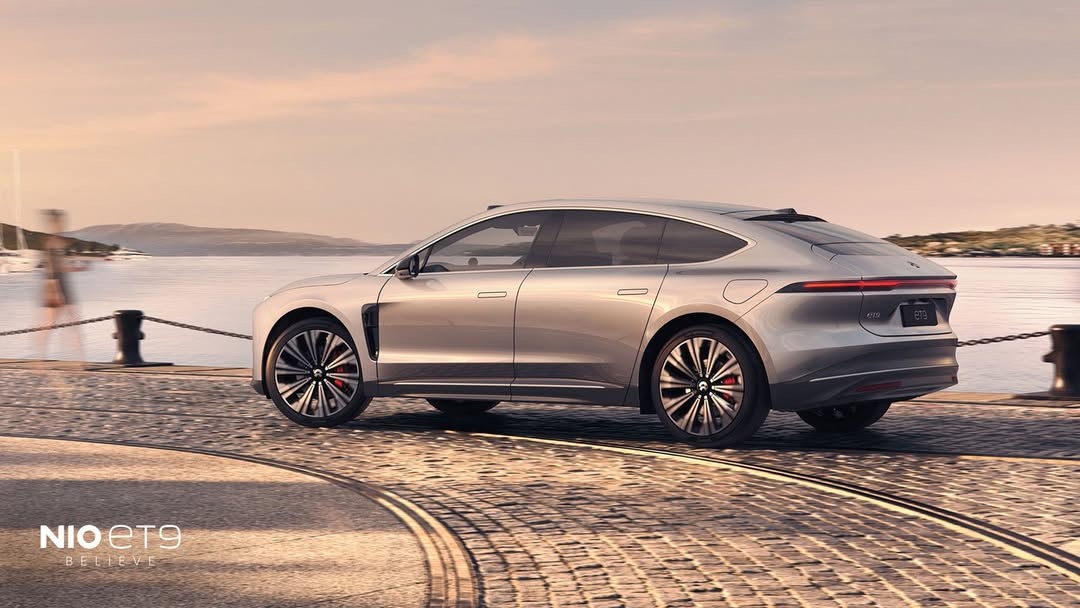[ad_1]
Nio unveils luxury ET9 electric sedan to compete with overseas premium car makers in world’s second-largest automobile market
Chinese electric carmaker Nio has begun sales of a high-end sedan called the ET9 that it positioned against luxury auto car makers such as BMW and Audi, making Nio the latest firm aiming to take domestic market share from foreign auto firms.
Nio said it expects to begin deliveries of the battery-electric ET9 in March.
“I feel safe to say that foreign car brands will continue to lose their market share” in China, Nio chief executive William Li said at a press event.
“They will be further marginalised in this market, where indigenous carmakers are showing an upper hand in developing and manufacturing electric cars.”

New technology
The vehicle, priced at 800,000 yuan ($109,960, £87,130) in presale, is fitted with cutting-edge technologies including the world’s first fully active integrated hydraulic suspension system and China’s first steer-by-wire technology, which decouples the steering wheel and the wheels.
Nio said earlier last week that it had received mass production approval from China’s Ministry of Industry and Information Technology (MIIT) for the steer-by-wire technology, making it the first mass-produced vehicle in the country to use the mechanism.
Steer-by-wire is critical to Nio’s plans for AI and autonomous driving, the company said.
The car uses a 120 kilowatt-hour battery pack with a high energy density, giving higher driving range per weight compared to the average battery, Nio said.
The firm has said in earlier filings that it is using batteries supplied by CATL.
Nio said it would give further details on the vehicle, including final retail prices, at its Nio Day event later this month.
The ET9 was announced nearly a year ago at last year’s Nio Day event.
Overseas companies currently hold about 40 percent of the Chinese car market, the world’s largest, down from 63 percent in 2015, according to the China Passenger Car Association (CPCA).

Premium EVs
The decline is largely due to Chinese car makers’ speedy adoption of electric vehicles, which have made up more than half of new-car sales in mainland China each month since July.
Swiss bank UBS said last month that foreign carmakers stand to lose $20bn a year in profits in China due to their slower shift to electric, but are likely to maintain their branding and production advantages in the premium segment.
Sales of premium cars, both electric and petrol-powered, made up 13.6 percent of the national total, or 3.47 million units, last year, the CPCA said.
About 27 percent of those were battery-powered, with the remainder mostly being petrol-powered foreign-branded vehicles.
China’s rapid adoption of EVs has raised competition concerns in countries and regions including the EU, the US and Canada, which have all imposed higher tariffs on Chinese EV imports.
[ad_2]
Source link


